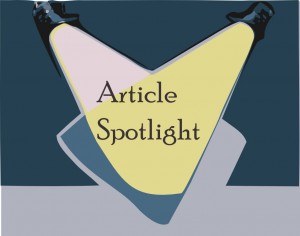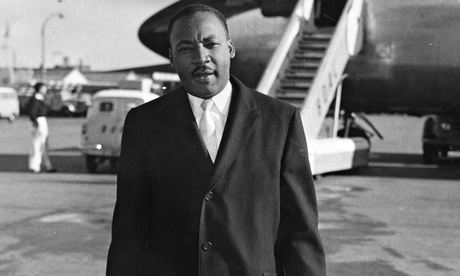The last part of this series on the historiography of nationalism in Ukraine, ‘Histories Divided and Entwined’, looked at the significance of regionally-differentiated understandings of Ukrainian history. Scholars have emphasised that particular regions in Ukraine have been pivotal for the development of other national ideas in addition to only the Ukrainian, the most significant contemporary example being the attachment felt by Russians towards Crimea, where the Ukrainian-Russian conflict of 2014 began. In recent televised remarks, Russian Prime Minister Dmitry Medvedev reiterated that “When we speak about Crimea … we realize that it is our history, our destiny and our pain too”. Lev Golinkin, writing in the new York Times has recently noted that the vast majority of the 450,000 Ukrainians who have fled the country since April have gone to Russia. Nicolai Petro of the University of Rhode Island has summed up the conflict as ‘a war over Ukrainian identity’: ‘For the westernmost regions (Galicia), being Ukrainian means suppressing Russian culture so that Ukrainian culture can thrive in its stead. Here, creating a Ukraine that is antithetical to Russia is commonly referred to as making a “civilizational choice” in favor of Europe. For the eight Russophone regions of eastern and southern Ukraine (which I call the Other Ukraine), being Ukrainian means being a distinct nation that is still very close to Russia. These Ukrainians do not wish to join Russia, but neither do they wish to be forced to forsake Russian culture in order to be considered loyal Ukrainians.’
In short, no analysis of nationalism in Ukraine, historical or otherwise, can begin without exploring not only the political role of Russia in Ukrainian affairs, but the role occupied by Ukraine in the Russian nationalist historical imagination.
The dispute over the meaning of the name ‘Ukraine’ itself encapsulates the contested relationship between the country and Russia. It was towards the mid-nineteenth century that ‘Ukrainian’ began to gain currency as an ethno-cultural as opposed to merely geographical identifier, a shift in meaning opposed by the imperial authorities, for whom the country was known as ‘Little Russia’.
As Theodore Weeks notes in his contribution to the Oxford Handbook of the History of Nationalism (2013), ‘The Russian [imperial] government never considered Belorussians and Ukrainians to make up separate nations, rather they were seen as branches of the Russian people speaking dialects of the Russian language.’ The early decades of Soviet rule in Ukraine resulted in limited recognition of Ukrainian ‘separateness’ as a result of the policy of indigenization, which in turn caused discontent among those Russians in Ukraine who saw themselves as victims of ‘reverse discrimination’. Weeks concludes that over a period of roughly 150 years until the present day a Russian fear of national separatism ‘has played a constant – if not primary – role in Russian politics.’
Andrew Wilson, in The Ukrainians: Unexpected Nation (2009) also argued that an inability to ‘engage seriously with the reality of Ukraine’s separate existence’ has conditioned Russian political and academic perspectives on Ukraine since 1991. Ukraine, according to this thinking, ‘is an artificial buffer state with no prospect of long-term coherence.’ (Wilson 2009: 300) Ukrainians, by contrast, demonstrate a more varied view of Russia, ranging from ‘rabid Russophobia in western Ukraine to equally Ukrainophobic Russian nationalism in Crimea. (Wilson 2009: 308)
Important recent historiography has demonstrated that Ukraine has played a dual role in ‘the Russian mind’, as a historical point of origin for ‘Slavdom’ and therefore the Russian nation, and also a place from where Russian unity – an often tenuous concept in the country’s history – was threatened. Faith Hillis, in Children of Rus’: Right-Bank Ukraine and the Invention of a Russian Nation (2013), finds that ‘Russia first encountered the challenge of modern nationalism in its western frontier.’ (Hillis 2013: 3) As Geoffrey Hosking noted in his work Russia and the Russians (2012 edn.): ‘Russia has usually been a multi-ethnic empire without a dominant nation’ which has with respect to Russia ‘rendered the distinction between internal and foreign affairs much less well-defined than in most polities.’ (Hosking 2012: 4) Ukraine was the locus for one of the most important foundational events for the Russian national(ist) historical narrative, the Russian Polish War of the 17th century. The Russian imperial state, apparently unable to forge a genuinely unifying idea of Russianness for its Russian subjects (Hosking 2012: 344), was presented with the alternative of defining itself as an empire of the Slavic people. The challenge of Ukrainian nationalism that defined itself against Russia posed a threat to this mode of Russian self-identification, and in a circular process that is familiar to students of other national conflicts, Russian attempts to suppress nascent Ukrainian ‘separateness’ only gave impetus to its development. (Hillis 2013: 16) Hillis has argued that the role of Ukrainian disillusionment with Russia, as opposed to straightforward ‘Russophobia’, should not be underestimated by the historian: ‘Many of the first [nineteenth-century] intellectuals to imagine a separate Ukrainian nation were in fact alumni of the Little Russian lobby.’ (Hillis 2013: 16)
Ilya Prizel, in National Identity and Foreign Policy (1998) has argued that ‘Russia’s history has been marked by a powerful and overbearing state but a weak, and even uncertain, national identity’, and that Ukraine’s history has been burdened by both these problems. (Prizel 1998: 2) The notion of a ‘Russian civilisation’ that takes precedence over established borders (as opposed to one of a Russian national identity that is bounded within the country’s historic borders) is, Prizel argues, an enduring idea with an old vintage in Russian history, and has continued to shape Moscow’s policy on its neighbours. But what made Ukraine so significant in this respect was that ‘the incorporation of Ukraine…fused Russia’s national identity within an imperial identity.’ (Prizel 1998: 157) Ukraine, in this light, becomes a matter of existential importance for Russianness, not just an object of power politics.
What these studies have in common and bring to light is the dual and at times conflicting role played by Ukraine in the development of Russian national identity not only in providing it with an important point of origin (such as the idea or myth of Kievan Rus’) but in offering an unsettling challenge to the very idea of Russianness. Seen in this light, it is less unsurprising that Prime Minister Medvedev should refer to Russian ownership of Crimea not only as ‘our destiny’ but also as ‘our pain’.
References
Faith Hillis, Children of Rus’: Right-Bank Ukraine and the Invention of a Russian Nation (2013)
Geoffrey Hosking, Russia and the Russians (2012 edn.)
Ilya Prizel, National Identity and Foreign Policy: Nationalism and Leadership in Poland, Russia, and Ukraine (1998)
Theodore Weeks, ‘Separatist Nationalism in the Romanov and Soviet Empires’, in John Breuilly (ed.), Oxford Handbook of the History of Nationalism (2013
Andrew Wilson, The Ukrainians: Unexpected Nation (2009)
Nicolai N. Petro, ‘The Real War in Ukraine: The Battle over Ukrainian Identity’, The National Interest, 4/12/14
Lev Golinkin, ‘Driving Ukrainians Into Putin’s Arms’, New York Times, 8/10/12
‘Dmitry Medvedev, Russian PM, says Crimea is “our destiny”‘, CBC News, 10/12/14
 This round of Article Spotlights focuses on Greece, in light of the recent elections that brought Syriza to power, and the new government’s attempts to renegotiate the country’s status with the rest of the EU, bringing you studies on nationalism in Greece from the SEN Archives.
This round of Article Spotlights focuses on Greece, in light of the recent elections that brought Syriza to power, and the new government’s attempts to renegotiate the country’s status with the rest of the EU, bringing you studies on nationalism in Greece from the SEN Archives.



